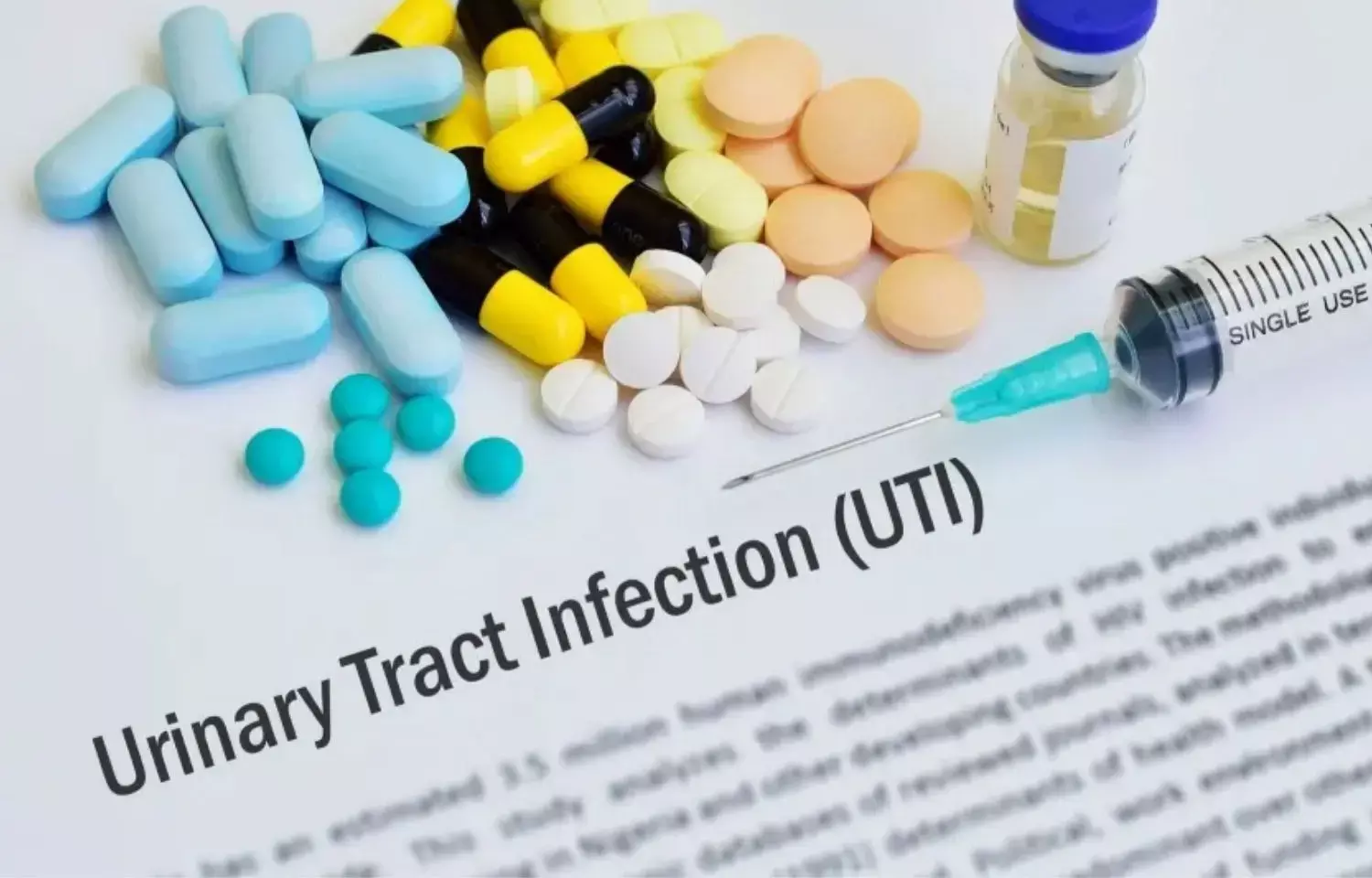- Home
- Medical news & Guidelines
- Anesthesiology
- Cardiology and CTVS
- Critical Care
- Dentistry
- Dermatology
- Diabetes and Endocrinology
- ENT
- Gastroenterology
- Medicine
- Nephrology
- Neurology
- Obstretics-Gynaecology
- Oncology
- Ophthalmology
- Orthopaedics
- Pediatrics-Neonatology
- Psychiatry
- Pulmonology
- Radiology
- Surgery
- Urology
- Laboratory Medicine
- Diet
- Nursing
- Paramedical
- Physiotherapy
- Health news
- Fact Check
- Bone Health Fact Check
- Brain Health Fact Check
- Cancer Related Fact Check
- Child Care Fact Check
- Dental and oral health fact check
- Diabetes and metabolic health fact check
- Diet and Nutrition Fact Check
- Eye and ENT Care Fact Check
- Fitness fact check
- Gut health fact check
- Heart health fact check
- Kidney health fact check
- Medical education fact check
- Men's health fact check
- Respiratory fact check
- Skin and hair care fact check
- Vaccine and Immunization fact check
- Women's health fact check
- AYUSH
- State News
- Andaman and Nicobar Islands
- Andhra Pradesh
- Arunachal Pradesh
- Assam
- Bihar
- Chandigarh
- Chattisgarh
- Dadra and Nagar Haveli
- Daman and Diu
- Delhi
- Goa
- Gujarat
- Haryana
- Himachal Pradesh
- Jammu & Kashmir
- Jharkhand
- Karnataka
- Kerala
- Ladakh
- Lakshadweep
- Madhya Pradesh
- Maharashtra
- Manipur
- Meghalaya
- Mizoram
- Nagaland
- Odisha
- Puducherry
- Punjab
- Rajasthan
- Sikkim
- Tamil Nadu
- Telangana
- Tripura
- Uttar Pradesh
- Uttrakhand
- West Bengal
- Medical Education
- Industry
Delayed antibiotics prescription in uncomplicated UTI tied to poorer outcomes in females: Study

Germany: When compared to immediate antibiotics, non-antibiotic strategies helped to reduce overall antibiotic use but resulted in poorer clinical outcomes in women with uncomplicated urinary tract infections (uUTI), states an article published in Clinical Microbiology and Infection.
Urinary tract infections (UTIs) are among the most common types of bacterial infections in clinical medicine. Cystitis and pyelonephritis are considered uncomplicated urinary tract infections (uUTI) in women with structurally and functionally normal urinary tract. Antibiotics are usually the first-line treatment in such patients. Though self-limiting in many cases, UTI accounts for a significant number of antibiotic prescriptions and leads to antibiotic resistance.
Rising rates of antibiotic resistance and a better understanding of the ecological adverse effects (collateral damage) of antibiotics warrant a reevaluation of antibiotics for treating uncomplicated UTIs. Various Randomised controlled trials (RCTs) have investigated analgesics, herbal formulations, delayed prescription of antibiotics, and placebo to curb over-prescription of antibiotics in women with uUTI.
Kaußner Y, University Medical Center Wuerzburg, Germany, and colleagues conducted a study to estimate the effect of experimental strategies on symptoms, antibiotic use, and incidence of complications (specifically pyelonephritis and febrile UTI) and to identify symptoms, signs, or other factors that indicate a benefit from these strategies.
Researchers performed a literature search in MEDLINE, EMBASE, Web of Science, LILACS, Cochrane Database of Systematic Reviews and Controlled Trials, and ClinicalTrials. RCTs investigating immediate antibiotics versus any alternate strategies to reduce antibiotics in adult women with uUTI in primary care were included in the study. Individual participant data (IPD) was extracted if available, otherwise, aggregate data (AD) was used for data synthesis. Bayesian random-effects meta-analysis of the AD was used for pairwise comparisons. Candidate moderators and prognostic indicators of treatment effects were investigated using generalized linear mixed models based on IPD. Researchers analyzed the IPD of 3524 patients from eight RCTs and AD of 78 patients
Key findings of the review,
• Non-antibiotic strategies increased the rates of incomplete recovery (Bayesian p-value pB=0.0017), subsequent antibiotic treatment(pB=0.0003) and pyelonephritis ( pB=0.0003).
• Non-antibiotic strategies decreased the overall use of antibiotics by 63%.
• Patients with erythrocytes in urine and positive urine cultures were at increased risk of incomplete recovery (pB =0.0010), but no difference was apparent when both were negative (pB =0.667).
• In patients, treated with non-antibiotic strategies, urinary erythrocytes and positive urine culture were independent prognostic indicators for subsequent antibiotic treatment and pyelonephritis.
The researchers conclude that compared to immediate antibiotics, non-antibiotic strategies reduce overall antibiotic use but result in poorer clinical outcomes in women with uUTI. The presence of erythrocytes and tests to confirm bacteria in urine could be used to target antibiotic prescribing.
Reference:
Kaußner Y, Röver C, Heinz J, Hummers E, Debray TPA, Hay AD, Heytens S, Vik I, Little P, Moore M, Stuart B, Wagenlehner F, Kronenberg A, Ferry S, Monsen T, Lindbæk M, Friede T, Gágyor I. Reducing antibiotic use in uncomplicated urinary tract infections in adult women: a systematic review and individual participant data meta-analysis. Clin Microbiol Infect. 2022 Jul 1:S1198-743X(22)00330-5. doi: 10.1016/j.cmi.2022.06.017. Epub ahead of print. PMID: 35788049.
BDS
Dr. Hiral patel (BDS) has completed BDS from Gujarat University, Baroda. She has worked in private dental steup for 8years and is currently a consulting general dentist in mumbai. She has recently completed her advanced PG diploma in clinical research and pharmacovigilance. She is passionate about writing and loves to read, analyses and write informative medical content for readers. She can be contacted at editorial@medicaldialogues.in.
Dr Kamal Kant Kohli-MBBS, DTCD- a chest specialist with more than 30 years of practice and a flair for writing clinical articles, Dr Kamal Kant Kohli joined Medical Dialogues as a Chief Editor of Medical News. Besides writing articles, as an editor, he proofreads and verifies all the medical content published on Medical Dialogues including those coming from journals, studies,medical conferences,guidelines etc. Email: drkohli@medicaldialogues.in. Contact no. 011-43720751


